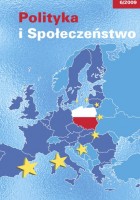SOCJOLOGIA POLITYKI – ARTYKUŁ DYSKUSYJNY
Political Sociology – a Discussion Paper
Author(s): Anna Gąsior-NiemiecSubject(s): Sociology of Politics
Published by: Wydawnictwo Uniwersytetu Rzeszowskiego
Keywords: Political Sociology
Summary/Abstract: The paper is dedicated to political sociology – its genealogy, status as a scientific discipline, its functions, agenda and methodological scope. The discussion of these issues is tuned towards didactic goals, facilitating students’ orienteering in the problematic, functions and requirements of political sociology as a part of political sciences. The paper consists of three parts. The first part, entitled „The origins and genaology of sociology political”, emphasizes historical continuity of reflection pertaining social conditions of politics. There, a project of scientist sociology and basing on its critiqs projects of Verstehen sociology and interpretative sociology are presented as well. It is also stressed that critical reflection over political relations and their social context involves an intermingling of emprical and normative aspects. The second part of the paper, enitled, „Debates and controversies pertaining contemporary political sociology”, outlines major axes differentiating positions taken by sociologists representing dominant methodological streams within this discipline of science nowadays. These axes are crystallized around a few issues that raise most controversies, incuding 1) an issue of institutional positioning of political sociology; 2) an issue of the subject matter of this discipline of science, and 3) an issue of the relationship between the discipline and its subject matter. The third part of the paper, entitled „An overview of major methodological conceptions and problems in contemporary political sociology”, discusses in some detail the main methodological approaches within the discipline as well as a tendency to broaden both the horizon of issues covered by contemporary political sociology and increase the scope of analytical approaches to research them. These tendencies are cliamed to result inter alia from empirical and theoretical insights provided by research into Europeanization and globalization. Subsequently, a basic structure of a course in political sociology is presented, leading analytical categories to be used while teaching the course are specified, and objectives inscribed in the university-level course of this discipline are listed.
Journal: Polityka i Społeczeństwo
- Issue Year: 2009
- Issue No: 06
- Page Range: 36-46
- Page Count: 11
- Language: Polish

